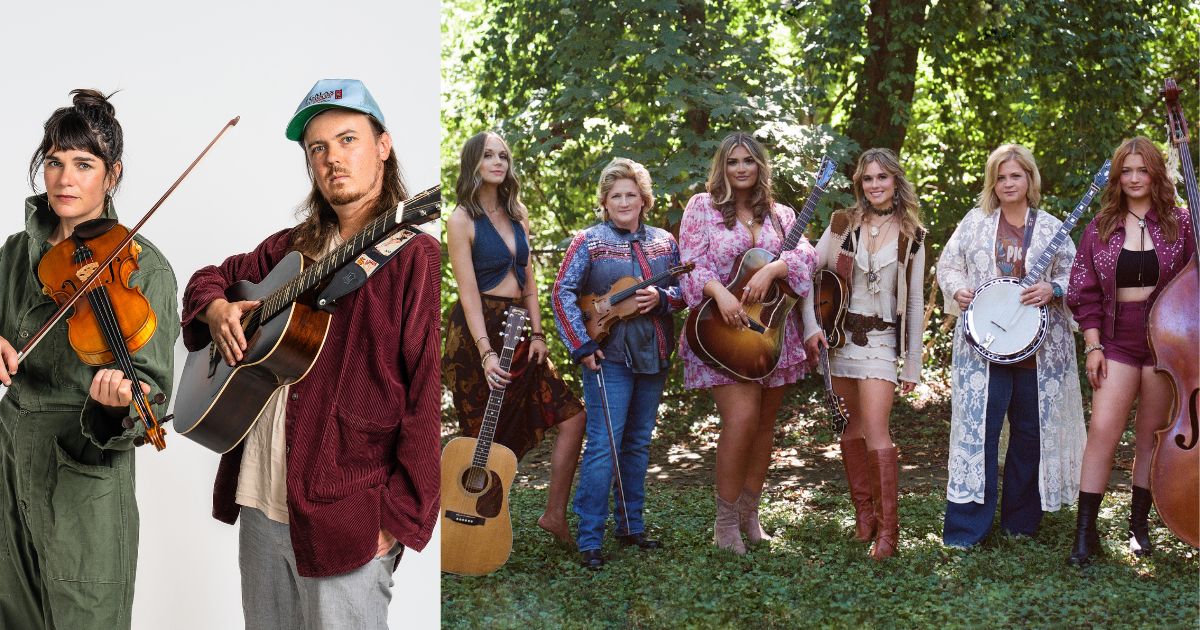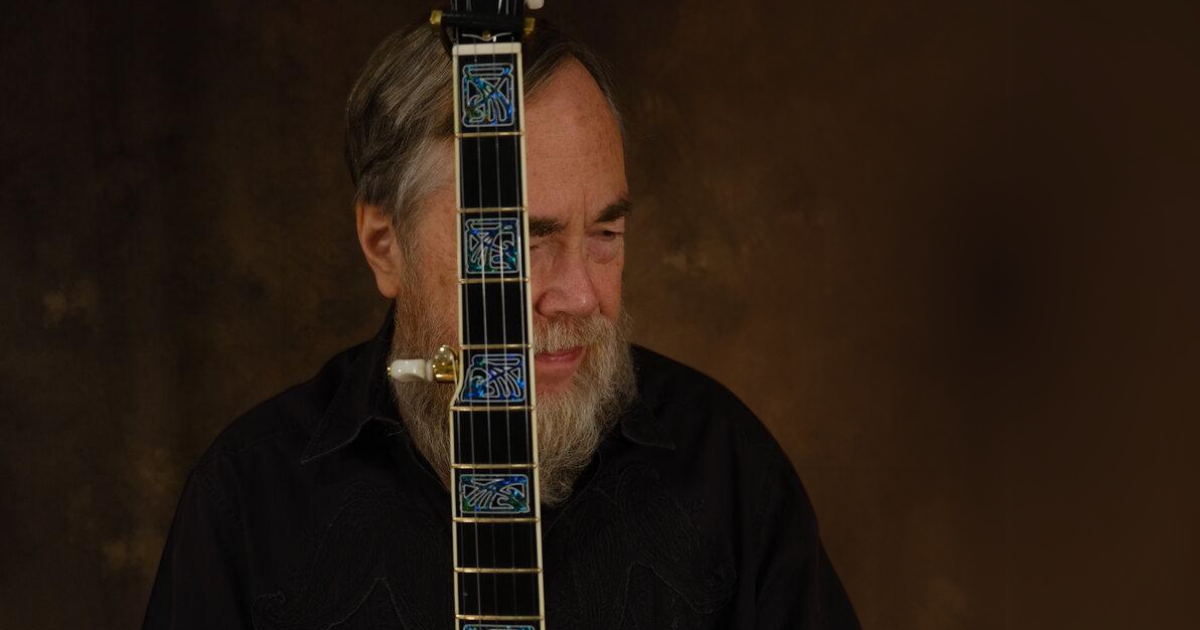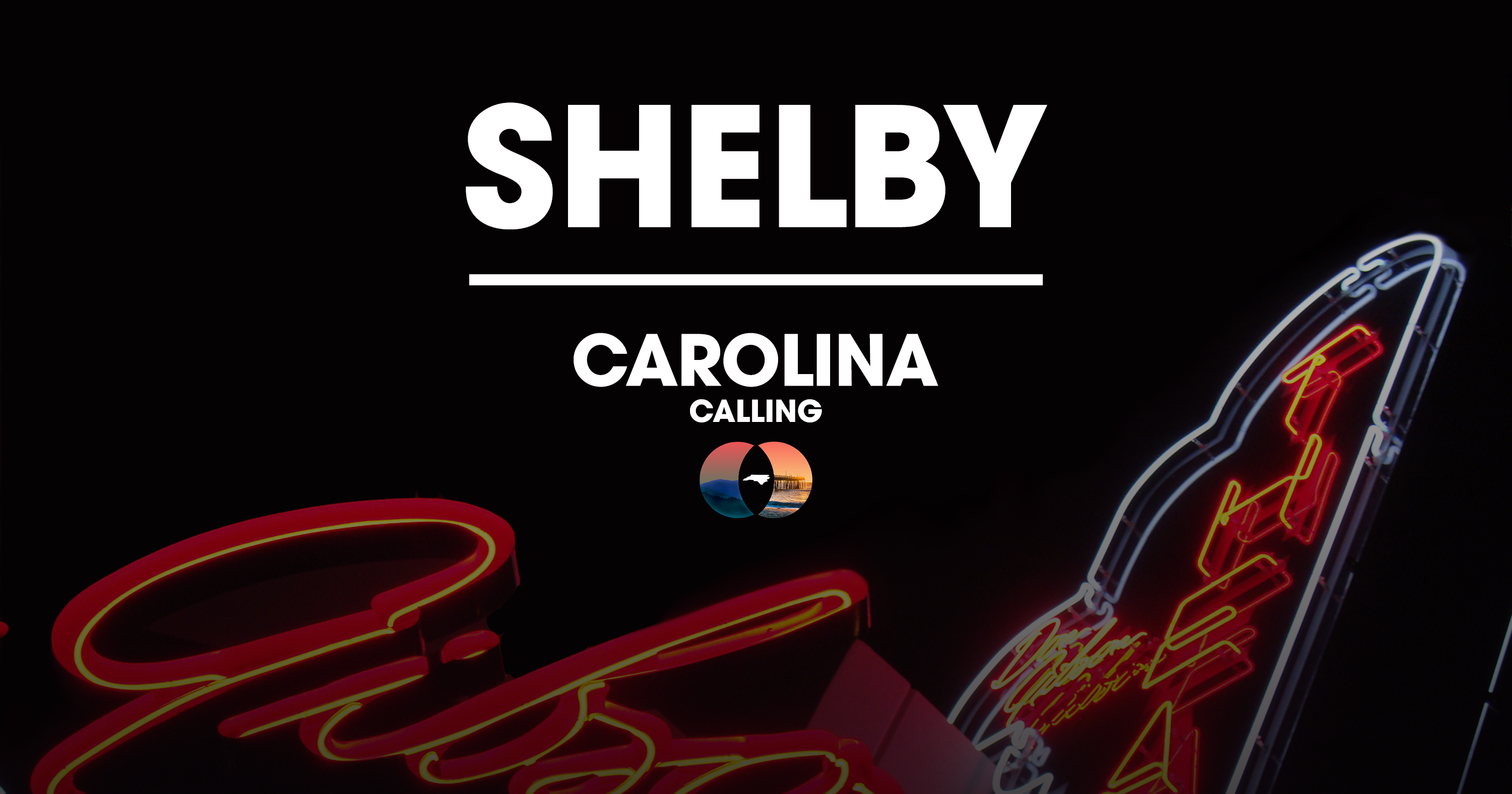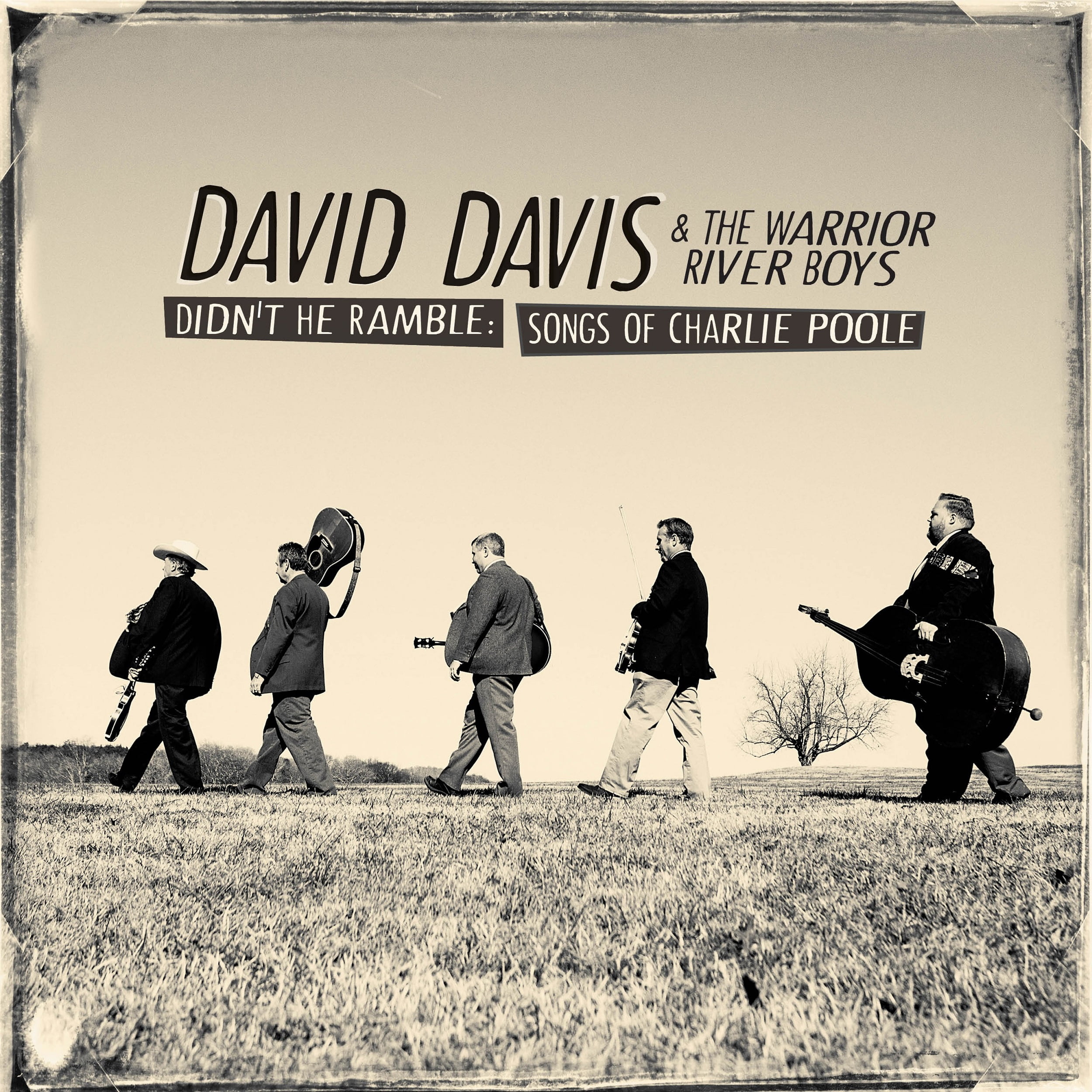As usual, it’s Friday and we’ve got a handful of videos and tracks you gotta hear this week!
Kicking us off, bluegrass and old-time duo Golden Shoals offer their fresh, topical take on a classic from the American songbook with “New White House Blues.” Then, singer-songwriter Heather Maloney brings us along through a “Labyrinth in the Weeds,” a nostalgic track about the circuitous, non-linear quality of grief and loss.
GRAMMY-nominated bluegrass supergroup Sister Sadie return to the round-up with a new single, “If I Don’t Have You,” a Dani Flowers-penned love song that’s as good as love songs get – because it keeps it simple. To wrap up this edition, Evan Westfall (who you may know from CAAMP), debuts a fascinating and ethereal instrumental, “SISDM,” that’s timeless and modern all at once.
They’re all right here, on BGS, and you know what we think– You Gotta Hear This!
Golden Shoals, “New White House Blues”
Artist: Golden Shoals
Hometown: Nashville, Tennessee / Vancouver, British Columbia
Song: “New White House Blues”
Album: The Dream and the Hunger
Release Date: January 17, 2025 (single)
In Their Words: “At the center of a Venn diagram featuring history, politics, and bluegrass music is a special kind of nerd. ‘White House Blues’ has always been a favorite of mine and I wanted to dive deeper into the story behind the McKinley assassination. The culprit, Leon Czgolsz (who is unnamed in ‘White House Blues’), was disillusioned by the inequity of the Gilded Age, and felt his actions would usher in a revolution for the working class. He truly was the Luigi Mangione of his day. The consequent presidency of Teddy Roosevelt looks like a win for the common man, but that idea is a house of cards. The motives of these assassins resonate with me, but these moments highlight this fact: without collective action, true and lasting change will never come. Through this 10-verse murder ballad, we pay tribute to Charlie Poole’s initial recording of ‘White House Blues’ by gradually speeding up, which builds tension and atmosphere.” – Mark Kilianski
Heather Maloney, “Labyrinth in the Weeds”
Artist: Heather Maloney
Hometown: Northampton, Massachusetts
Song: “Labyrinth in the Weeds”
Album: Exploding Star
Release Date: January 31, 2025
Label: Signature Sounds
In Their Words: “This song is an ode to one of my earliest and most favorite memories at my childhood home, which was at the edge of the Appalachians in northwest New Jersey. My dad would let the grass in the field grow until late summer. When it came time to mow, he didn’t cut it down all at once– he’d weave through on the John Deere, making a sort-of maze for us kids and we’d follow behind.
“I remember how it felt so viscerally; the smell of the grass, the crunch under my feet, and especially the giddy feeling of losing sight of him when he rounded a new corner. After he died this actually came to mind. I had a sense that my dad, who was always making a game out of things, had just rounded another kind of new corner I couldn’t yet see past. It was a comforting thought and the inspiration for the song.” – Heather Maloney
Sister Sadie, “If I Don’t Have You”
Artist: Sister Sadie
Hometown: Nashville, Tennessee
Song: “If I Don’t Have You”
Release Date: January 10, 2025
Label: Mountain Home Music Company
In Their Words: “I don’t write too many love songs. Most of the songs in my catalog are admittedly pretty depressing. But ‘If I Don’t Have You’ is just that – a love song about loving someone so much that everything you’ve ever wanted or hoped to accomplish now pales in comparison to the need you have to be with that person.” – Dani Flowers
“Dani Flowers came to me with this sweet melody and the first two lines of this song. We finished it that day. This is my favorite kind of love song; simple melody and simple lyrics. It doesn’t get much better than Dani’s angelic voice singing about how going through life and experiencing the most amazing things wouldn’t mean half as much ‘If I Don’t Have You.'” – Deanie Richardson
Track Credits:
Dave Racine – drums
Deanie Richardson – fiddle
Gena Britt – banjo
Mary Meyer – mandolin, piano
Maddie Dalton – Upright bass
Seth Taylor – Acoustic guitar, electric guitar
Dani Flowers – Lead vocals
Jaelee Roberts – Harmony vocal
Evan Westfall, “SISDM”
Artist: Evan Westfall
Hometown: Columbus, Ohio
Song: “SISDM”
Album: Is This Our Exit?
Release Date: January 8, 2024 (single); January 24, 2024 (album)
Label: Super Sport Records
In Their Words: “This song came together by accident after I started tuning my guitar with no direction and stumbled into the tuning of EBEF#BD#. This song title is a reference to an essay by the Columbus-based poet Hanif Abdurraqib about the transition from summer to fall. You can really feel that shift in seasons here in Ohio, the excitement that comes with the fresh start of something like a new school year or football season, even though that season ends up in bare trees and cold grey skies. It’s a hopeful melody, but overly dramatic.” – Evan Westfall
Track Credits:
Evan Westfall – Guitars, banjo, drums
Dan Alvarez – Guitars, banjo, bass, drums
Jordan Dunn-Pilz – Guitars, drums
Photo Credit: Golden Shoals by Mike Dunn USA; Sister Sadie by Allister Ann.



